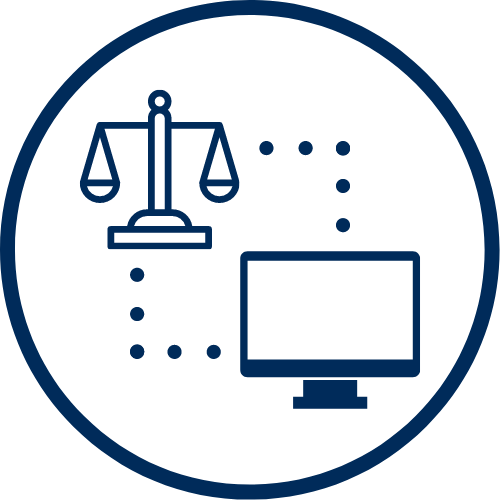Digital Surveillance
Human & Civil Rights, Digital Surveillance & Emerging Technologies
Networked technologies have evolved to afford an unprecedented capacity to track, influence and control people through digital means. The implications of this predicament dominate political, economic, and cultural discourse today. The same evolutionary pathway allowed a small number of powerful actors to disproportionately imagine, create and control the means and regulation of digital surveillance.
From the cables and servers that make up the physical infrastructure of the internet to the design of facial or voice recognition algorithms, all digital technologies carry a range of possibilities – from promising to pernicious – for the future development and enjoyment of human rights. But the deployment of emerging technologies has not led to greater equality, more democratic access to knowledge, or safer and more inclusive societies – and where positive developments have emerged, these come at grave costs at the margins which often go undocumented or dismissed as acceptable in economies focused on efficiency and scale.
In the future, the demand for effective accountability options for the creation and misuse of repressive technologies will grow as human rights advocates are increasingly empowered and supported in their work. That means finding new innovative ways to communicate and build solidarity across political borders, and investing in the creative use of investigative tools and legal advocacy to expand access to justice in this complex and evolving field.

Sovereign Identity Crisis: State, Self, and Collective in a Digital Age – November 17, 2022
Sovereign Identity Crisis: State, Self, and Collective in a Digital Age Event Hosted by iLIT and the Temple Law…

The Real Work of Decolonization: Underlying Patterns of Colonial Domination in Africa Driving AI Futures
March 8, 2022 19:00 CET About the Event: This discussion creates a space to engage with the reality that…

iLIT Contributes to Philly Tech Week 2022 Event Hosted by the World Affairs Council
https://wacphila.org/events/ptw2022-technology-and-human-rights The event, The Impacts of Technology on Human Rights Around the World, was convened by the World Affairs…

iLIT & NYU Response to White House AI Bill of Rights Initiative Draws on Global Practice
Response to Request for Information from the White House Office of Science and Technology Policy on a Bill of…
New Research Project: Profiling the Digital State
iLIT is partnering with Stanford’s Digital Civil Society Lab and Cornell’s Citizens and Technology (CAT) Lab in a research…

Temple Law Confronts Policy Gaps for Emerging Technologies
Ed DeLuca LAW ’23iLIT FellowSarbjot Kaur Dhillon LAW ’23iLIT FellowBianca Evans LAW ’22iLIT Fellow Newly founded institute advocates for…
